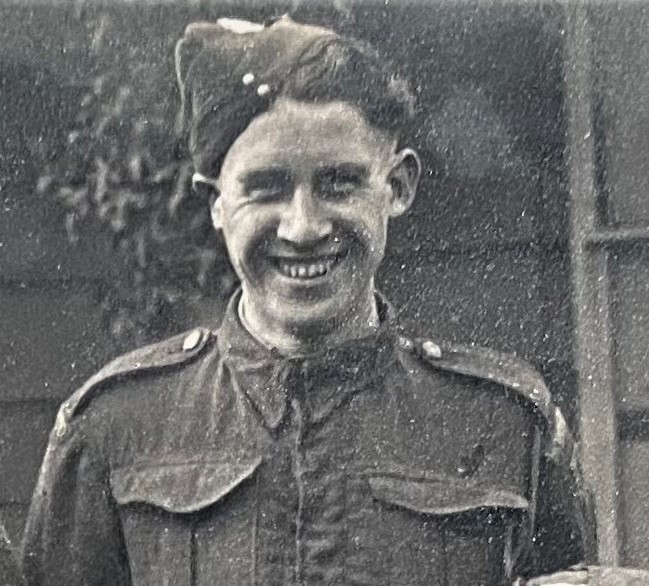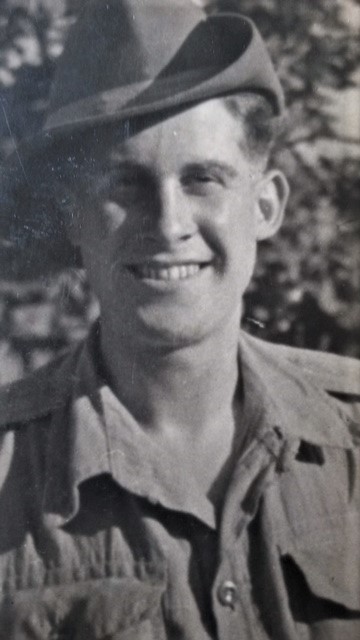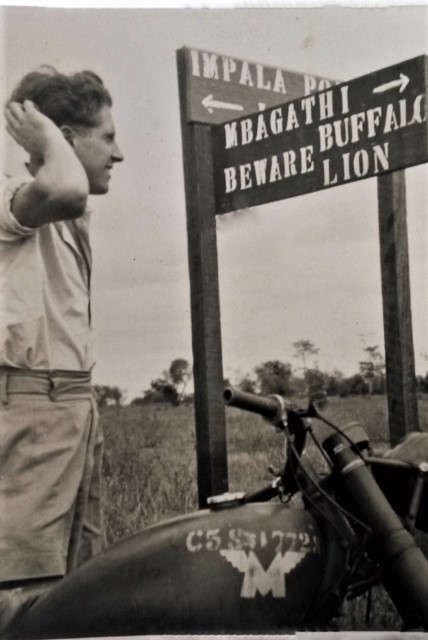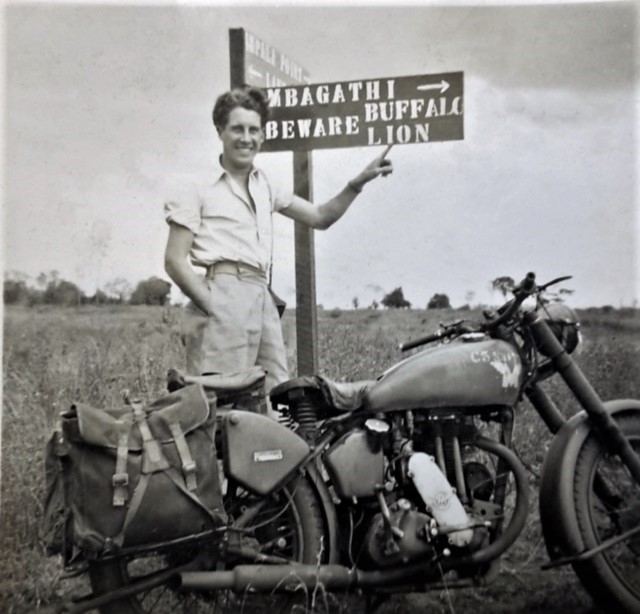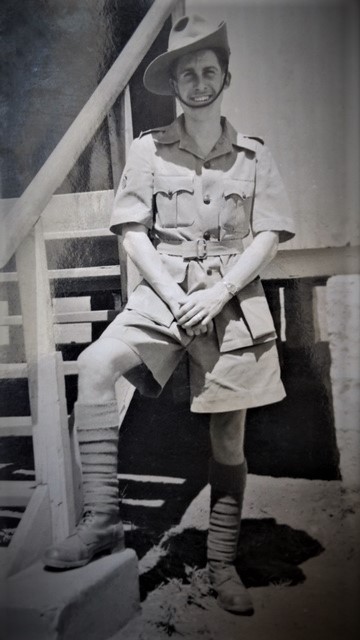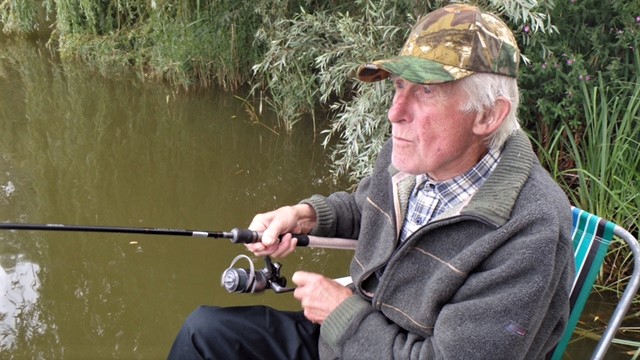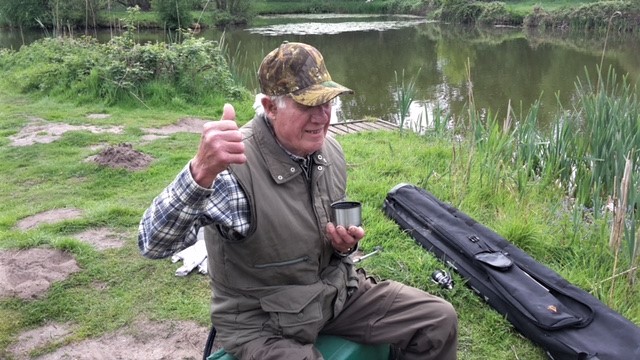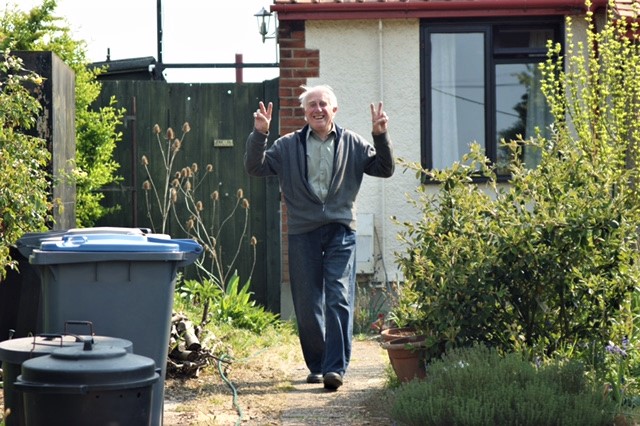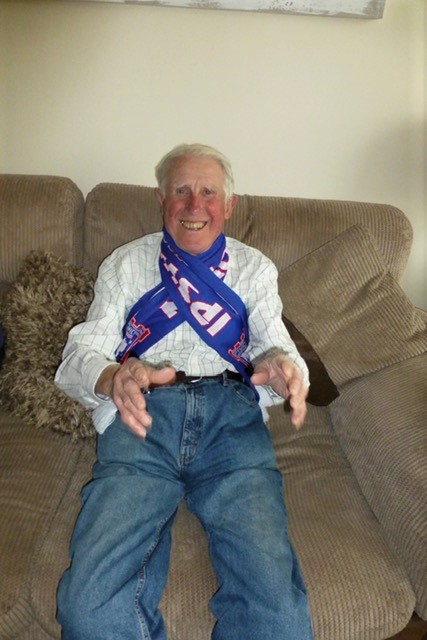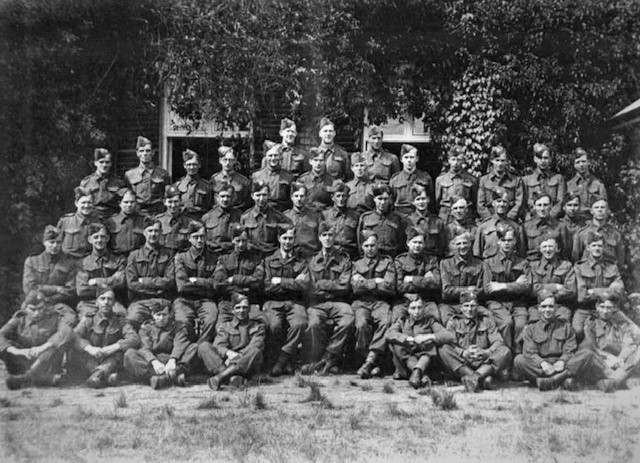| Unit or location | Role | Posted from | until |
|---|---|---|---|
| Ipswich-2 Patrol | Patrol member | Unknown | 03 Dec 1944 |
Claude Riches wrote down his wartime experiences for his grandson Daren in about 1980.
The Second World War started the 3rd of September 1939. I was 14½, grandma a little bit younger. After a few months when our soldiers had been defeated in France the Germans started sending planes over England to bomb military places like airfields and soldiers’ camps etc. They also tried to bomb factories and gasometers, anything which would disrupt our way of life.
The government gave everybody in Ipswich and a lot of other places along the East Coast of England an Anderson Shelter. This shelter which was made of heavy corrugated iron (a little room 10 foot by 6 foot) was put into the ground about 7 feet and covered over with the soil from the hole, leaving just a small entrance which had sandbags around it. Inside there were bunks enough for all the family. We slept down there every night summer and winter for something like two years maybe more.
We the people got a warning when planes were coming towards Ipswich, it was called a siren, which gave a wailing sound when the planes were coming, and just a plain tone when it was all clear, and they had gone. The siren was sounded day after day, night after night, sometimes for very long periods, sometimes for short. Even when we were at work if they started dropping bombs in and around Ipswich, we all ran to the shelters, which were very much bigger than at home, and made of concrete - underground of course.
When the German planes came over Ipswich at night we often used to watch them being caught in search lights. These search lights were like big torches about 2 foot - 3 foot in diameter, their beam of light reached up into the sky a long way. There were six or seven around Ipswich and on clear nights with little cloud they would try and find one. (These search lights were operated by soldiers.) If they did find one, you could see it quite clearly. Then the big guns would start shooting trying to bring it down which they did sometimes, not very often though. Shooting at them often made them turn away and go somewhere else or drop their bombs and then turn around and head for home (Germany). We lived in Bloomfield St, great-grandma’s old house. Two bombs were dropped in that road at different times and people were killed.
Your grandma lived in the next road to this one (Beach Road). One night was very bad, they had incendiary bombs dropped in their garden and a shed which was burnt to the ground. Incendiary bombs do not explode, on hitting something, they just burst into flames. They were a little bigger than a milk bottle, with flights on the end. Dozens were dropped at that time and there were fires everywhere. On that same raid bombs were dropped in this road and two bungalows were hit, and people killed.
One of the things that I remember most was, I and some pals were walking near the shops at the top of Heath Rd when German planes bombed and machine gunned Martlesham Heath, which was an airfield. From the front of the shop we watched the planes diving down, heard the bombs explode also heard the rat-a-ta-ta of the machine guns. The shop windows were rattling in their frames. Fighter planes were stationed at Martlesham, Spitfire and Hurricanes.
When I was about 17 years old I joined the Home Guard. We all had army uniforms, rifles and all the things soldiers have. We used to drill and train to fight in case the Germans landed, we would have fought alongside the real army. We had some fun at times. Good job the Germans didn't land here.
When I was about 18½ years old I joined a special section of the Home Guard, a guerrilla group. There was only one patrol in all Ipswich, I think there was ten of us. We had a big concrete underground bunker, which was situated near Ipswich railway station. We had camouflage battle dress, rubber boots, stuff to blacken our faces. Most of us had colt revolvers, some had automatic guns (Sten gun) fired about 30 rounds in a clip. There was enough food down there to last us a month. Plenty of explosive material, time fuses, safety fuses, Molotov cocktails, hand grenades. In fact anything that could be used to kill the enemy. Had the Germans landed and got established in Ipswich, our job was to blow up bridges, blow up sections of main roads, destroy their vehicles etc. We would have done most of this work during the night, and lived underground during the daytime. All the while I was in the Home Guard, we still used to go to work during the week, all the training was done Saturdays and Sundays.
I got called up for the proper army just before I was 21 years old, November 1945. The war finished I think in August 1945 V.J. (Victory over Japan) day. I had been in the army about four months, in fact, I went on board ship to go to East Africa on my 21st birthday (no party for me). I was in East Africa about 3 ½ years. It's a lovely country, plenty to do if you like wild animals. Every weekend we used to go to the National Park which is miles and miles of bush country, no fences around it, all open, but about every quarter mile you would see a big pile of boulders (rocks) painted white. We hired trucks or motorbikes from the army very cheap, we travelled miles getting photos of different animals.
I hope this will help you Daren, that's the end. xxx
TNA ref WO199/3389,
Grandson Gareath Evans
